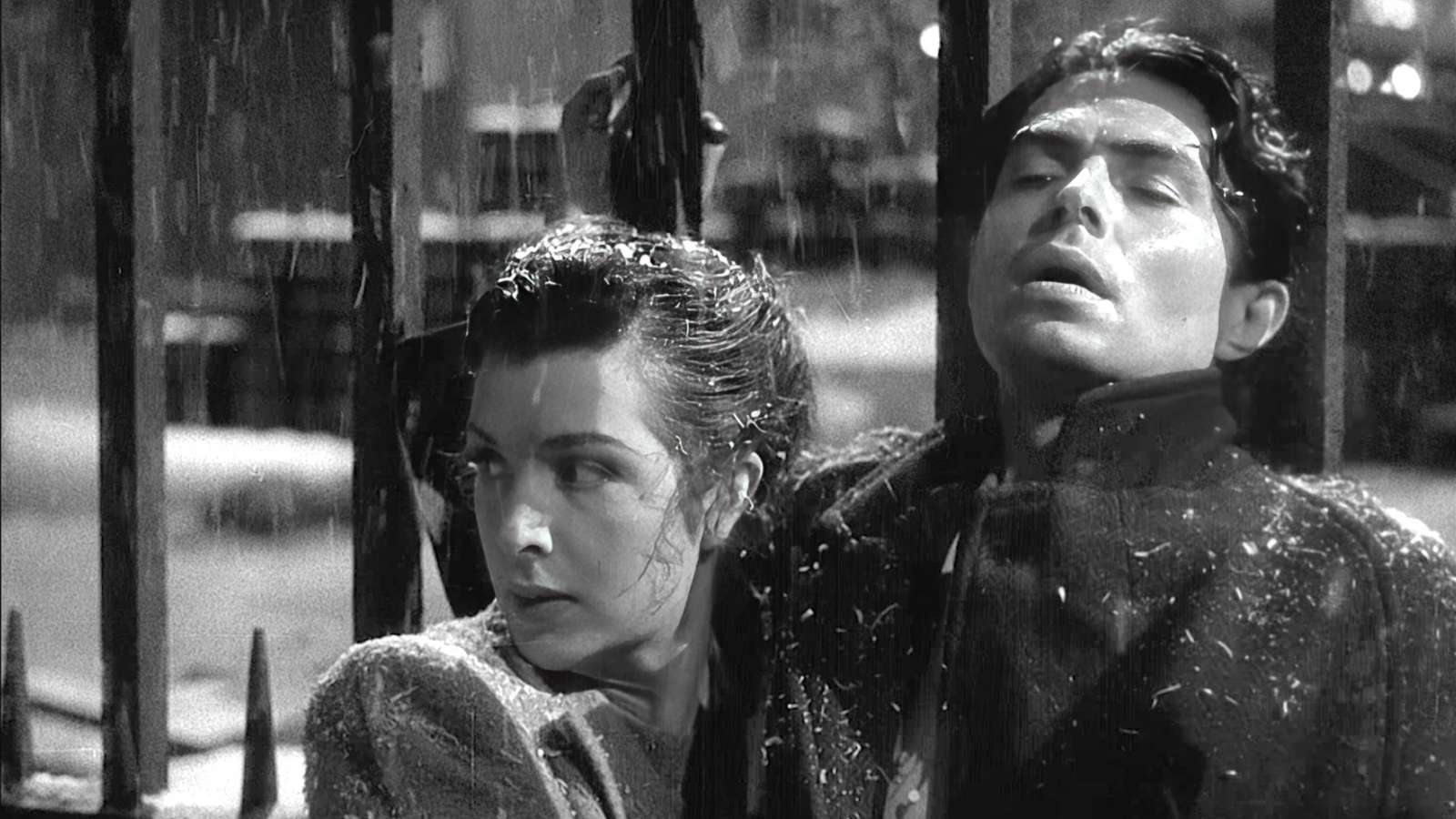We’ve been 36 hours without electricity, and as the temp climbs towards 90 I am getting frayed about the edges. Also I’m realizing how many stupid things in my life have batteries that must be charged.
Since Elon Musk talks a lot about Iain Banks’s novels about the Culture, I am forced to recommend my own essay on those novels — from fifteen years ago (!), but I think it holds up well, and offers a more complex account of those books that Elon gives.
Genesis
I was disappointed by Marilynne Robinson’s Reading Genesis, though that may have less to do with the quality of Robinson’s book than with my way of thinking about the Bible. Robinson proceeds by a kind of Lockean association of ideas: on one (typical) page a thought about Joseph and his brothers reminds her Adam and Eve, who remind her of Jacob and Esau, who remind her of Hagar, who leads her back to Adam and Eve … the connections are of course perfectly legitimate, but to treat the text in this leaping sort of way causes me to lose sight of the actual linear development of the narrative. My buddy Austin Kleon has taught me in these circumstances not to take out my frustrations on the book but to say with a gentle shrug, “It wasn’t for me.”
So I thought I should take this as a Divine Hint: I decided to go back and, for the first time in many years, read Robert Alter’s translation of the Pentateuch. I am not sure I have ever read it cover-to-cover. I see that I have a good many notes inscribed in my copy … notes I don’t remember making; and almost all of these are from his introductions to the books. So perhaps I have never read the actual translation, and I certainly haven’t done so from beginning to end.
Anyway: I’m going to read Alter’s Pentateuch — just that: no commentaries, no scholarly treatises — and I’m going to blog about reading it. Intermittently, maybe. But if you’re interested, stay tuned.
App-based authentication assumes that you have your phone at hand always. But I don’t and won’t. The primary alternative is a hardware key, but then you have to keep that key at hand always, and I would definitely leave it in yesterday’s trousers and have to dig around in the dirty clothes for it. I could keep it on my key ring, but then I would have to carry that with me at all times. All of these “security solutions” suck.
Cunning Folk: Life in the Era of Practical Magic, by Tabitha Stanmore, looks interesting. I wrote my own essay about cunning folk a few years back.
clichés, yes or no
Since the moment I learned about the concept of the “thought-terminating cliche” I’ve been seeing them everywhere I look: in televised political debates, in flouncily stencilled motivational posters, in the hashtag wisdom that clogs my social media feeds. Coined in 1961 by psychiatrist Robert Jay Lifton, the phrase describes a catchy platitude aimed at shutting down or bypassing independent thinking and questioning. I first heard about the tactic while researching a book about the language of cult leaders, but these sayings also pervade our everyday conversations: expressions such as “It is what it is”, “Boys will be boys”, “Everything happens for a reason” and “Don’t overthink it” are familiar examples.
From populist politicians to holistic wellness influencers, anyone interested in power is able to weaponise thought-terminating cliches to dismiss followers’ dissent or rationalise flawed arguments.
This seems exactly right to me. But perhaps it’s worth noting here that two years ago the Chronicle of Higher Education, of all journals, published an essay by Julie Stone Peters, a Professor of English and comparative literature at Columbia, arguing that thought-terminating clichés are super-cool because they are politically effective and because students aren’t smart enough to do any better. No, seriously:
Not all of our students will be original thinkers, nor should they all be. A world of original thinkers, all thinking wholly inimitable thoughts, could never get anything done. For that we need unoriginal thinkers, hordes of them, cloning ideas by the score and broadcasting them to every corner of our virtual world. What better device for idea-cloning than the cliché?
Note here a doozy of a false dichotomy: either applaud clichés or have a world of people with “whole inimitable thoughts.” Sure, Peters concedes, sometimes academic clichés “may go rogue” and “might explode on you.” But that’s the chance she is willing to take. The alternative — expecting students to think and trying to help them do that better — is so much more unpleasant. I have to give Peters credit for being willing to say the quiet part out loud, because this really is how a lot of professors think.
This might be a good time to remind y’all that, as William Deresiewicz writes, some interesting groups of people are abandoning universities not because they disdain the humanities and the liberal arts, but because they love them.
Mandy Brown, inspired by Deb Chachra’s brilliant new book: “Optimization presumes a kind of certainty about the circumstances one is optimizing for, but that certainty is, more often than not, illusory…. Another way to look at this is that you cannot optimize for resilience. Resilience requires a kind of elasticity, an ability to stretch and reach but then to return, to spring back into a former shape—or perhaps to shapeshift into something new if the circumstances require it. Resilience is stretchy where optimization is brittle; resilience invites change where optimization demands continuity.”
In the last few weeks, all of my weather apps have gone haywire, including ones with multiple sources of weather data. They say it’s raining when the sky is cloudless; they say it’s sunny when it’s pouring rain; current temps are off, sometimes by 15 degrees. They’ve all lost their minds at once!
Yes, authentication service, this is my device — just as it was when you asked me 45 minutes ago.
Freddie DeBoer: “For a very large swath of the human population, probably the majority, constantly forming and expressing and fighting over opinions on contentious topics is an unusual and unpleasant activity. It’s not that many people out there just don’t naturally form opinions, on art and culture and politics, the way anyone does. But to think of those opinions as something to constantly bring into a state of contention with others, to argue all the time as a matter of day-to-day life, is intimidating even for many smart and principled people. It’s hard to recall now, but there was a very recent period in which most people had no greater opportunity to share their opinions than to say them out loud at work or a bar or during the fellowship service after church. The truly motivated might stand on the street with a bullhorn or start a paper newsletter or write letters to the editor. Most people never bothered. The cacophony of opinion we live in is very new.”
William Deresiewicz: “The notion, floated now in certain quarters, that students and parents will turn from the Harvards and Yales in disgust is a fantasy. As long as elite institutions remain the principal pipeline to elite employers (and they will), the havers and strivers will crowd toward their gates. Everything else—the classes, the politics, the arts and sciences—is incidental. Which is not to say that interesting things aren’t happening in post-secondary (and post-tertiary) education. They just aren’t happening, for the most part, on campus.”
This is an old theme of mine. See e.g. this post.
Odd Man Out

Carol Reed’s Odd Man Out is a brilliant movie about … well, that’s the question. Some people say it’s a movie about the IRA, but that’s certainly wrong, and not because the name of the organization and the name of the city in which the action is set are never mentioned. This is obviously Belfast, and the organization whose members at the outset plan a heist is obviously the IRA. But within the world of the movie doesn’t matter what cause Johnny McQueen (James Mason) serves — it never matters, to the writer or director or characters or audience.
So what is it about? I think the movie explores how people try to understand the kind of story they’re in. And Reed wants to sow confusion on that score.
The movie’s look is pure noir — and as beautifully photographed a noir as you’ll ever see, by Robert Trasker, whose work here is even better than in The Third Man, which is saying a lot — and the plot seems for quite a while to come straight out of the desperate-manhunt playbook. But for the kids on the sidewalk who pretend to be Johnny McQueen, it’s a heroic-rebel-against-the-Man story. For some of the ordinary people drawn into the event, it’s a why-can’t-I-just-live-in-peace story. For the painter Lukey (Robert Newton) it’s a great-suffering-makes-great art story. For Kathleen Sullivan (Kathleen Ryan), it’s a star-crossed-lovers story. For the scavenger Shell (F. J. McCormick), it’s an opportunity-knocks-and-I-answer story. And so on down the line.
Everyone projects their own sense of the story onto Johnny, because after the first few minutes of the movie Johnny doesn’t act; he is acted upon. Wounded, sometimes unconscious, often delirious, he becomes a kind of package passed from person to person, a problem to be solved — a mirror into which people look and learn something about themselves. Whose side are they on? — a question to be asked with the understanding that in this fractured world there are always many sides.
Meanwhile, in his moments of mental clarity, Johnny tries to understand what his story is to him. And he ends in a very different place from the one in which he begins, even if the seeds of his ending are already planted by the time we first see him.

Ruskin revisited
What follows is a kind of sequel to the introduction to Ruskin I published several years ago.
Ruskin begins The Stones of Venice by identifying what he believes to have been the essential characteristics of Venetian society in its heyday – which is to say, the twelfth century through the fourteenth:
The most curious phenomenon in all Venetian history is the vitality of religion in private life, and its deadness in public policy. Amidst the enthusiasm, chivalry, or fanaticism of the other states of Europe, Venice stands, from first to last, like a masked statue; her coldness impenetrable, her exertion only aroused by the touch of a secret spring. That spring was her commercial interest, — this the one motive of all her important political acts, or enduring national animosities. She could forgive insults to her honor, but never rivalship in her commerce; she calculated the glory of her conquests by their value, and estimated their justice by their facility.
Yet even as they calculated in this crassly financial way,
The habit of assigning to religion a direct influence over all his own actions, and all the affairs of his own daily life, is remarkable in every great Venetian during the times of the prosperity of the state; nor are instances wanting in which the private feeling of the citizens reaches the sphere of their policy, and even becomes the guide of its course where the scales of expediency are doubtfully balanced.
Ruskin goes on to say (somewhat wryly, I think) that this influence of private piety on public policy only happened when the leaders of Venice were rushed — whenever they had time to think they would suppress piety in favor of commercial self-interest.
Nevertheless, the piety of the great Venetians — and Ruskin believes it was sincere, that these men were not hypocrites but rather inconstant and/or skilled in compartmentalizing (as who among us is not?) — seemed to have the power to shape the city’s spirit and to sustain its prosperity, because “the decline of her political prosperity was exactly coincident with that of domestic and individual religion.” When that religion waned, so too did Venice’s political and commercial influence. Ruskin explains that precise correspondence between private piety and public success thus:
We find, on the one hand, a deep and constant tone of individual religion characterising the lives of the citizens of Venice in her greatness; we find this spirit influencing them in all the familiar and immediate concerns of life, giving a peculiar dignity to the conduct even of their commercial transactions, and confessed by them with a simplicity of faith that may well put to shame the hesitation with which a man of the world at present admits (even if it be so in reality) that religious feeling has any influence over the minor branches of his conduct. And we find as the natural consequence of all this, a healthy serenity of mind and energy of will expressed in all their actions, and a habit of heroism which never fails them, even when the immediate motive of action ceases to be praiseworthy. With the fulness of this spirit the prosperity of the state is exactly correspondent, and with its failure her decline, and that with a closeness and precision which it will be one of the collateral objects of the following essay to demonstrate from such accidental evidence as the field of its inquiry presents.
And he pauses at this point in his exposition to suggest that this history might have some relevance to British subjects who have ears to hear. The idea that London is the New Venice is a muted but constant refrain in The Stones of Venice.
This account of politics and religion in Venice is quite interesting, but the thing that makes Ruskin Ruskin is where his thought now takes him: “I would next endeavor to give the reader some idea of the manner in which the testimony of Art bears upon these questions, and of the aspect which the arts themselves assume when they are regarded in their true connexion with the history of the state.” And this is what the rest of The Stones of Venice, all three big volumes of it, does: to explain how the art of Venice — its painting, its architecture, its ornaments and designs in every medium — reveals the rise, the health, the majesty, the decline, and the humiliation of the city of Venice. Which is, I think it’s fair to say, an astonishing project.

The question I keep asking myself — that I’ve been asking myself for years — is: How can I think in a genuinely Ruskinian way about our own time and place? What would that look like? What would be the … I dunno, the ingredients I guess? The only thing I know for sure — and this goes back to the last sentence of my earlier Ruskin essay — is that we must begin by attending to beauty, and to the absence of it, in our public life. But that’s an abstract answer to a question that demands specificity.
I’ve been reading the story of David in 1 and 2 Samuel, and in this history there is a character called Doeg the Edomite, but every single time I read his name I read it as Doug. Doug the Edomite.
Scott Alexander: “So the question — which I don’t see anyone on either side asking in a really curious way — is: which works better? Telling patients to think of their mental problems as misfiring brain circuits, then reprogramming/medicating those circuits? Or telling patients to think of their mental problems as demons, then exorcising those demons?”
Here’s Adam Roberts critiquing my annotations of Auden’s “Winds” – and offering a very thoughtful reading of that poem. I don’t agree that I’m wrong in every case, but I definitely missed Pausanias’s reference to Athena as goddess of winds. Grrrrr. (That’s the problem with publishing anything — you get to grind your teeth for all eternity over what you mess up.)

